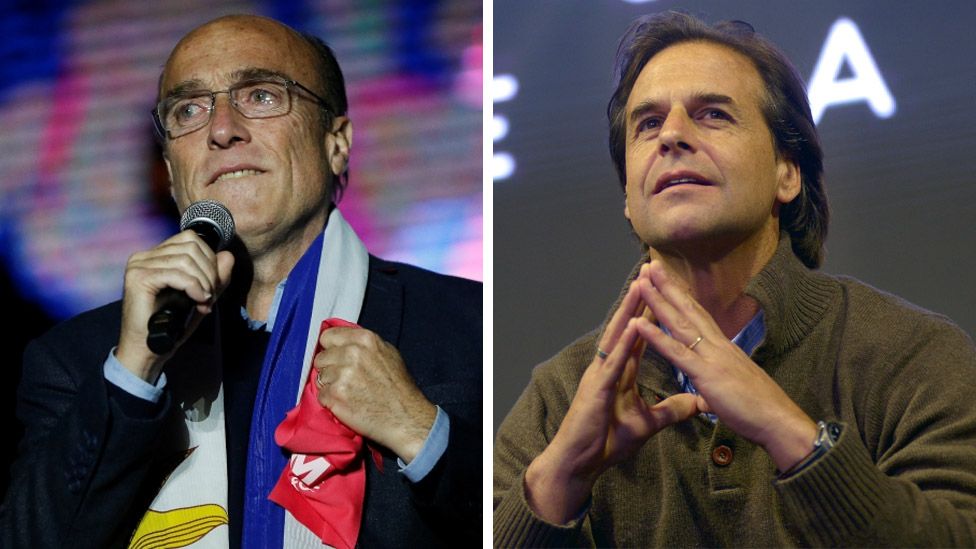Uruguay election: Rising crime top concern for voters
- Published

Voters in Uruguay are going to the polls on Sunday to elect a new president, with rising crime a leading concern.
Outgoing President Tabaré Vázquez of the left-wing Broad Front coalition will not be running, as presidents are prohibited from serving consecutive terms.
A referendum on tougher security measures will be held at the same time.
Its backers want to create a military-style National Guard.
No presidential candidate supports the proposals linked to the referendum and human rights groups have also raised concerns.
However, a recent survey by polling organisation Cifra indicates it currently has 53% support. It needs 50% or more to pass.
In the presidential race, candidates must also receive at least 50% of the vote to avoid a run-off on 24 November.
All seats in the House of Representatives and the Senate will also be decided in the election.
What's the current situation?
The Broad Front coalition has governed Uruguay since 2005.
However, President Vázquez's approval rating has slumped to under 30%, according to recent surveys, as opposed to 61% at the end of his 2005-2010 term, when he was the country's first leftist leader.
The economy and unemployment are a major concern for voters, with only 22% of citizens rating the economy as good, according to Cifra.
However, crime is dominating much of the debate.
The homicide rate increased by 46% last year, reaching 11.8 per 100,000 people.
Who is running for president?
Daniel Martínez, Broad Front
- Ex-mayor of Montevideo and former minister of industry, energy and mining
- Polling between 33% and 41%
- As a former socialist activist and a pro-business engineer, he is seen as having a wide appeal
- Promises more surveillance cameras and community policing to tackle crime
Luis Lacalle Pou, National Party
- Came second in 2014 election, and has been a member of Congress since 1999, when he was 26 years old
- Polling between 22% and 27%
- Conservative and very pro-business
- Wants to put more police on the street, but also wants to tackle the high cost of living through austerity measures
Ernesto Talvi, Colorado Party
- Chicago-educated economist, the son of immigrants from Macedonia and Cuba
- Polling between 10% and 16%
- Has focused his campaign on education, aiming to create 136 public high schools in deprived neighbourhoods
- Has called for a less heavy-handed approach to crime and rehabilitation programmes for prisoners
Guido Manini Ríos, Open Cabildo
- Right-wing general
- Polling at 10% to 12% with this newly formed party
- Running on a socially conservative, law-and-order platform
- Has been compared to Brazilian President Jair Bolsonaro
The prediction
Based on current polling, it is likely to go to a run-off between Mr Martínez and Mr Lacalle Pou.
The other big question
The criminal reform referendum is pegged to the Living Without Fear campaign, promoted by Senator Jorge Larrañaga, a member of the National Party. However many members of the party have not backed the idea, denouncing it as reactionary.
Alongside creating the controversial national guard, the reform seeks to permit night raids and make some prison sentences more severe.
Some have blamed social exclusion for the rise in violent crime, while others have linked it to gangs and cross-border trafficking.
- Published24 June 2019
- Published2 April 2019
- Published28 December 2016
- Published4 April 2019
- Published15 August 2018
- Published4 May 2023